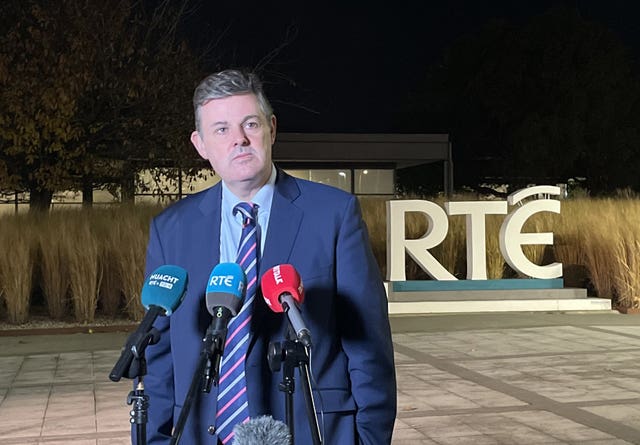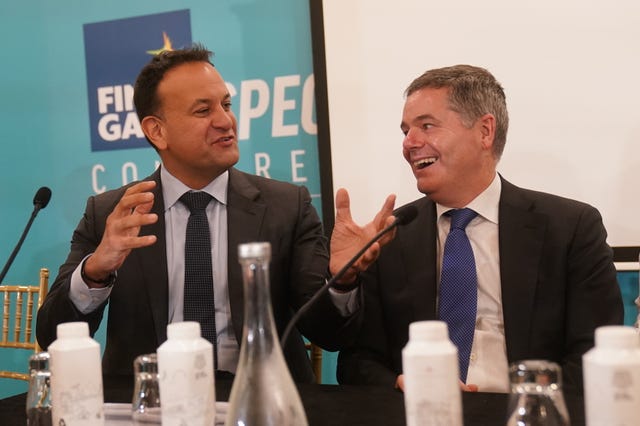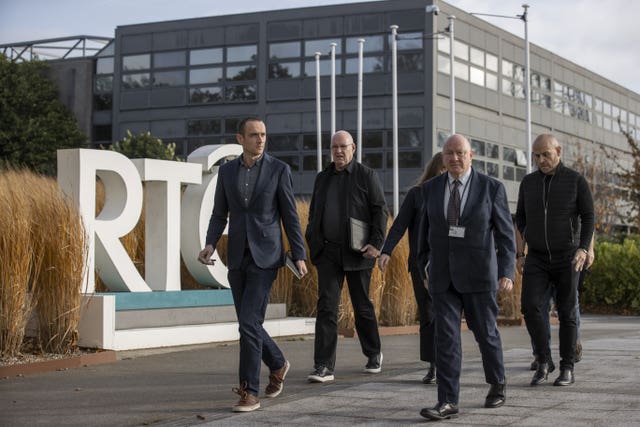TV licence should remain core part of RTE funding, says minister
No government should be involved in determining how much money a state broadcaster should get, Paschal Donohoe has said.

The television licence should remain a core part of funding RTE, according to Paschal Donohoe.
The public expenditure minister said the conditions attached to 40 million in funding earmarked for RTE next year involved ensuring the broadcaster implements the reforms it has committed to.
RTE director-general Kevin Bakhurst published his plan for reform and cost savings at the organisation, including the salary price cap of 250,000 euro and up to 400 job cuts over four years.
RTE digital stations and plus-one TV channels are due to be axed, there will be a greater reliance on independent productions and spending cuts worth around 10 million euro next year.
Mr Bakhurst said this will affect TV and radio programmes and would mean that purchasing new equipment such as radio desks would have to be delayed.

The broadcaster is facing a funding crisis that has been exacerbated by controversies this summer after it admitted to mis-stating the fees paid to its then-highest earning presenter Ryan Tubridy.
As the issue widened out to broader governance and financial issues, RTE has seen a multimillion-euro drop in revenues as fewer TV licence fees were bought this year.
Government has approved funding of 12 million euro this year and a further 40 million euro next year for RTE, but it will be released in two tranches based on certain conditions.
Two reviews into culture and governance at RTE are due to be completed in the first week of February, which the first tranche of funding is partly reliant on, ministers suggested.
A unit within the Media Department is to oversee the allocation of the 40 million euro government funding to RTE.

Speaking on Sunday, Mr Donohoe said that the plan put forward by Mr Bakhurst is “clearly going in the right direction”, and said government would be looking for “assurances that it is being implemented”.
Senior government figures have pledged they will decide on a long-term funding issue for public service broadcasters like RTE before the coalition’s term comes to an end.
Asked whether an option being considered would include Revenue Commissioners collecting licence fees, Mr Donohoe said “it will be one of the options that will be considered”.
He told RTE’s This Week programme it had been considered before and rejected.

“The reason why it was rejected before – and I would indeed have some reservations about it, but I am willing to look at it – is because the Revenue Commissioners only collect taxes, and there’s a really important difference between tax and the law behind tax and something that is a charge.”
He said that “we should tread really carefully before we expand their remit into other areas”, but that it was a matter for the Minister for Finance Michael McGrath and coalition party leaders.
“There aren’t any easy options here,” he added.
Asked about what long-term funding option he prefers, Mr Donohoe said: “I have three criteria in mind that will guide me to it when I make a decision in 2024.
“The first criteria is I do not believe that any government should be involved in allocating and determining how much money a state broadcaster should get.
“The independence of the revenue to the state broadcaster from ministers such as myself is an essential element of public service broadcasting.
“Number two, I believe we should have a method of collecting this that delivers a compliance rate that is at least in line if not ahead of where we are at the moment.
“Number three, there’s still a very large amount of revenue coming in from the television licence at the moment. We should not be walking away from that. That has to be a feature of how we continue to collect revenue into the future.”





